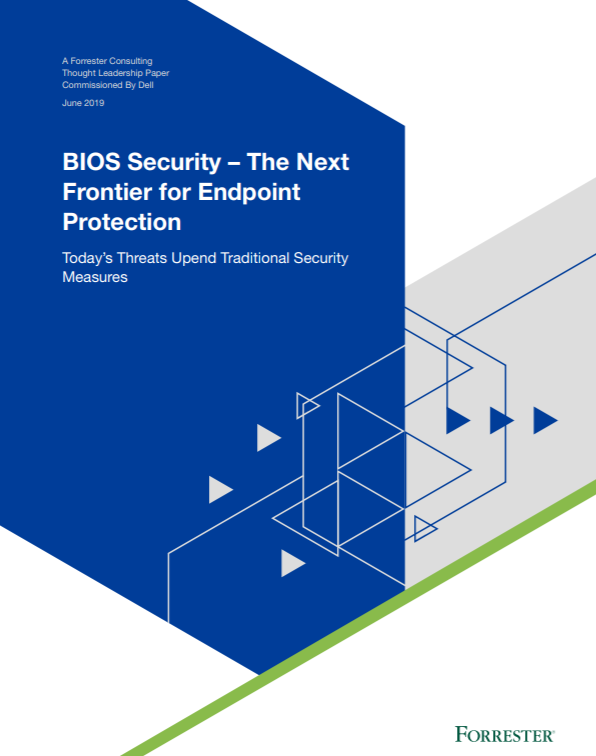IoT coffee machine hacked to demand ransom
Your morning brew could be disrupted by a lack of encryption and a reverse engineered firmware update


A security researcher has managed to reverse engineer an IoT coffee maker to the point where ransomware could be uploaded to the machine.
Martin Hron, a researcher with security firm Avast, conducted an experiment on the £179 Smarter Coffee Maker (version 1) to prove that hacking IoT devices is more than just accessing them via weak routers.
Security issues within the Smarter brand of coffee machines, and its iKettle, have previously been highlighted. London-based security firm Pen Test Partners found that they could recover Wi-Fi encryption keys used in the first version of the Smarter iKettle in 2015. These same flaws were also spotted in the first version of the coffee maker.
Hron managed to turn that same coffee maker into a ransomware machine. After tinkering with the IoT device, he found that when connected to the user's home network, the coffee maker's functions all went off simultaneously and a pre-programmed ransom message endlessly bleeped across the display.
His experiment was so successful that the only way to stop the machine from going haywire was to pull the plug.
"I was asked to prove a myth, call it a suspicion, that the threat to IoT devices is not just to access them via a weak router or exposure to the internet, but that an IoT device itself is vulnerable and can be easily owned without owning the network or the router," Hron wrote in a blog post.
"We thought this would be enough to freak any user out and make it a very stressful experience. The only thing the user can do at that point is unplug the coffee maker from the power socket."
Sign up today and you will receive a free copy of our Future Focus 2025 report - the leading guidance on AI, cybersecurity and other IT challenges as per 700+ senior executives
Hron was able to access the coffee machine through a firmware update because of the unencrypted connection to its corresponding smartphone app. He uploaded the Android app's latest firmware version to a computer and reverse engineered it using an interactive disassembler, and also took the coffee machine apart to learn what CPU it used.
With all that information, he then wrote a Python script that mimicked the coffee maker's update process. His modified firmware and lines of script caused the machine to go haywire and demand a ransom.
RELATED RESOURCE

BIOS security: The next frontier for endpoint protection
Today’s threats upend traditional security measures
This is by no means an easy hack and it has its limitations, as an attacker would need to find the coffee maker within Wi-Fi range. It can be triggered by hacking someone's router, but that would potentially require access to more than just a coffee machine.
"A very limited number of first-generation units had been sold in 2016 and although updates are no longer supported for these models, we do review any legacy claims on a per customer basis in order to provide continued customer care," a Smarter spokesperson told IT Pro.
But the implications of this kind of hack are concerning for the wider IoT industry, according to Hron, as smart gadgets could be rendered incapable of receiving patches to fix such a weakness. He also suggests that this type of vulnerability might be exploited in devices that no longer receive support.
"With the pace of IoT explosion and bad attitude to support, we are creating an army of abandoned vulnerable devices that can be misused for nefarious purposes such as network breaches, data leaks, ransomware attack and DDoS."
Bobby Hellard is ITPro's Reviews Editor and has worked on CloudPro and ChannelPro since 2018. In his time at ITPro, Bobby has covered stories for all the major technology companies, such as Apple, Microsoft, Amazon and Facebook, and regularly attends industry-leading events such as AWS Re:Invent and Google Cloud Next.
Bobby mainly covers hardware reviews, but you will also recognize him as the face of many of our video reviews of laptops and smartphones.
-
 Everything we know so far about the Nike data breach
Everything we know so far about the Nike data breachNews Hackers behind the WorldLeaks ransomware group claim to have accessed sensitive corporate data
-
 There’s a dangerous new ransomware variant on the block – and cyber experts warn it’s flying under the radar
There’s a dangerous new ransomware variant on the block – and cyber experts warn it’s flying under the radarNews The new DeadLock ransomware family is taking off in the wild, researchers warn
-
 Hacker offering US engineering firm data online after alleged breach
Hacker offering US engineering firm data online after alleged breachNews Data relating to Tampa Electric Company, Duke Energy Florida, and American Electric Power was allegedly stolen
-
 Cybersecurity experts face 20 years in prison following ransomware campaign
Cybersecurity experts face 20 years in prison following ransomware campaignTwo men used their tech expertise to carry out ALPHV BlackCat ransomware attacks
-
 15-year-old revealed as key player in Scattered LAPSUS$ Hunters
15-year-old revealed as key player in Scattered LAPSUS$ HuntersNews 'Rey' says he's trying to leave Scattered LAPSUS$ Hunters and is prepared to cooperate with law enforcement
-
 The Scattered Lapsus$ Hunters group is targeting Zendesk customers – here’s what you need to know
The Scattered Lapsus$ Hunters group is targeting Zendesk customers – here’s what you need to knowNews The group appears to be infecting support and help-desk personnel with remote access trojans and other forms of malware
-
 Impact of Asahi cyber attack laid bare as company confirms 1.5 million customers exposed
Impact of Asahi cyber attack laid bare as company confirms 1.5 million customers exposedNews No ransom has been paid, said president and group CEO Atsushi Katsuki, and the company is restoring its systems
-
 The US, UK, and Australia just imposed sanctions on a Russian cyber crime group – 'we are exposing their dark networks and going after those responsible'
The US, UK, and Australia just imposed sanctions on a Russian cyber crime group – 'we are exposing their dark networks and going after those responsible'News Media Land offers 'bulletproof' hosting services used for ransomware and DDoS attacks around the world


